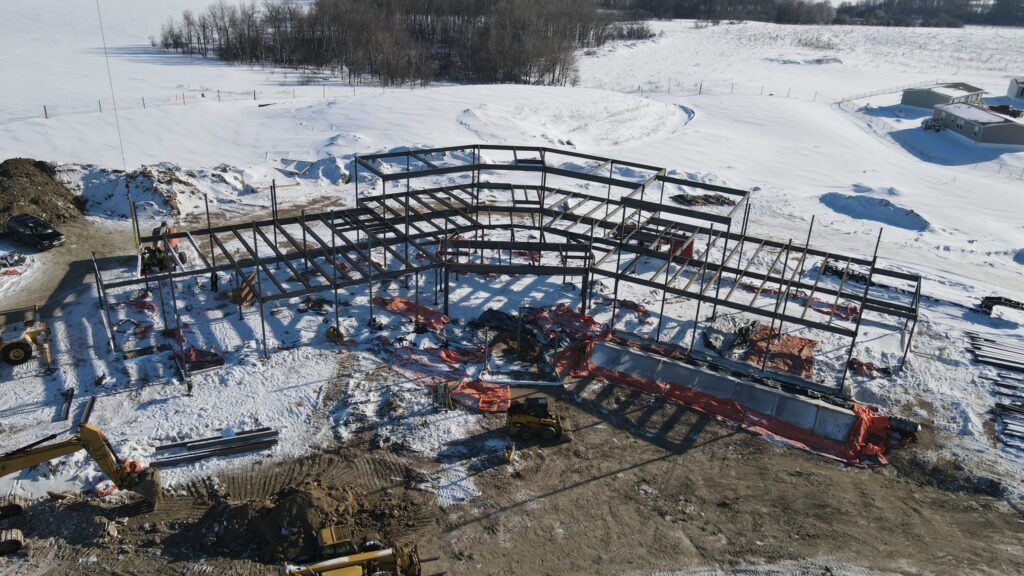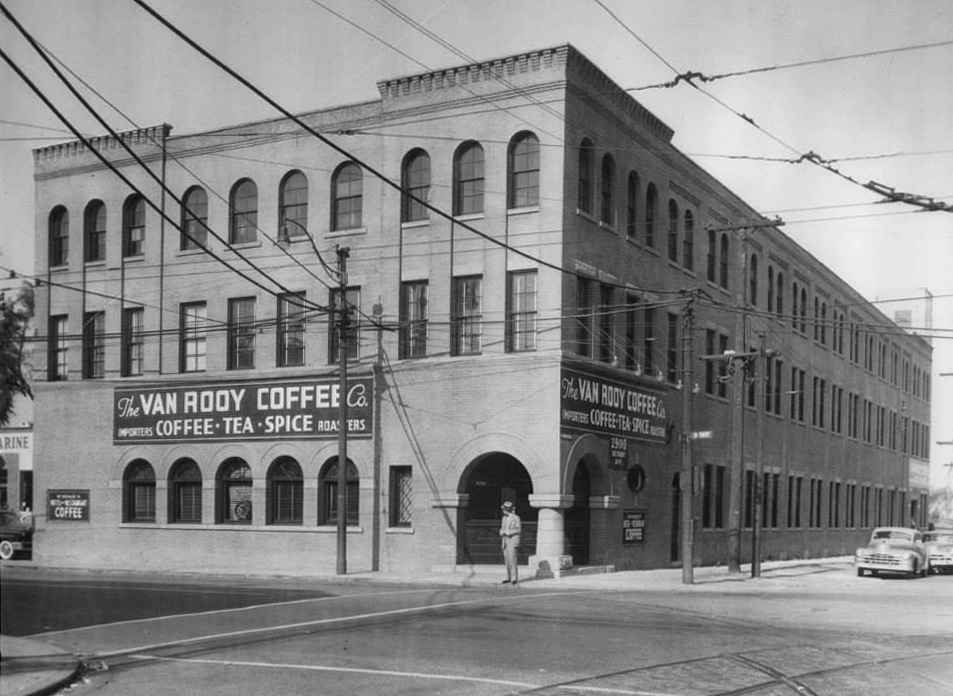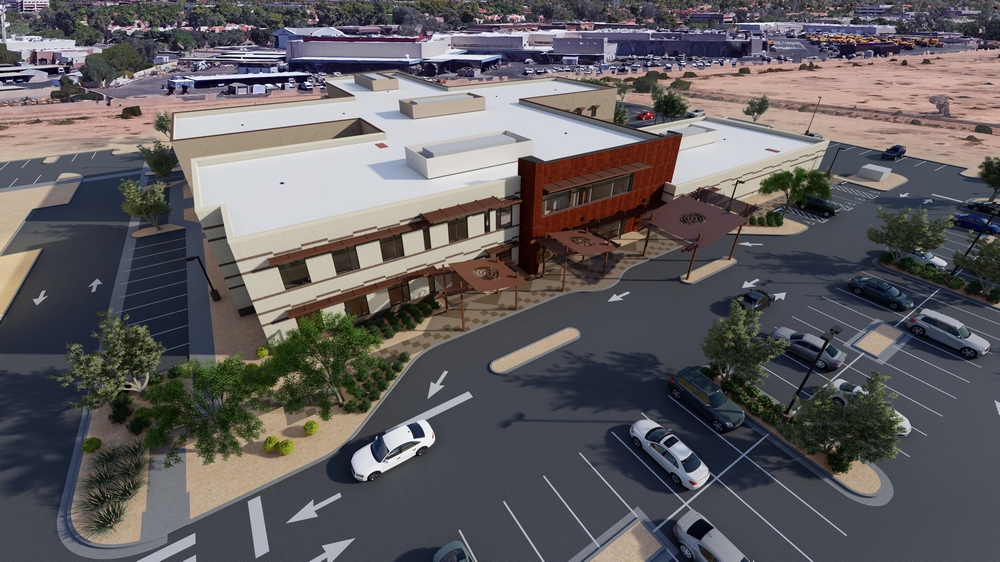Families in low-income areas often lack access to addiction treatment facilities. Thanks to the New Markets Tax Credit, many communities have added new treatment facilities and services. Often, substance-abuse treatment is paired with other services in facilities that provide holistic assistance to families and individuals. Below are a few stories of how the NMTC is expanding access to treatment:
Dr. Lucy Sewall Center for Acute Treatment
Opioid addiction, a growing public health issue in the United States, is driving a need for specialized treatment facilities. In July 2016, the Dr. Lucy Sewall Center for Acute Treatment (the “Sewall Center”) received an $11,000,000 New Markets Tax Credit allocation from MassDevelopment New Markets, LLC and a $3,500,000 NMTC allocation from Capital One, also the tax credit investor, to provide needed capital to renovate this critical detoxification center for individuals suffering from substance abuse.
The Sewall Center is part of The Dimock Center. Located in Roxbury neighborhood of Boston, the Dimock Center offers comprehensive, culturally-competent health and community care, behavioral health services, and child and family services to more than 17,000 people annually in Boston and communities across the state.
The Sewall Center provides detoxification treatment to individuals suffering from alcohol and opioid addiction. It is an in-patient program: patients being treated for alcohol detoxification usually stay 3-5 days, and patients being treated for opioid detoxification typically stay for 5-7 days at the Center. After treatment, patients are placed in residential settings that provide structured, safe environments critical to on-going recovery or enrolled in out-patient treatment programs. Of the approximate 3,000 patients served last year, all were low-income, a majority was unemployed, and many were homeless.
The Sewall Center’s detoxification program has been operating in the historic Sewall Building since the 1980s. The building had not been renovated since it opened and was in need of immediate intervention and renovation in order to continue to provide critical services for alcohol and opioid addiction. The renovation of the Sewall Building includes re-design/re-configuration of inpatient rooms, conference rooms, the nurses’ station and staff offices, all of which will support modern treatment methodology, and prioritize security, safety and operational efficiency. As part of the re-design, ten additional patient beds are being added which enables the Sewall Center to help an additional 1,000 individuals annually.
The Sewall Center currently employs 40 full-time equivalent (FTE) staff, and they expect to add 10 FTE staff. In addition to training provided to on-site staff, the Dimock Center is engaged with local institutions to further education and training in substance abuse treatment by sponsoring clinical internships at the Sewall Center. Most importantly, the renovated Sewall Center will allow staff to continue to have a strong impact in helping individuals on their road to recovery from addiction.
Other sources of financing included a $5,000,000 grant from the Commonwealth of Massachusetts, capital campaign funds, and a $4,270,000 loan from Century Bank to bridge capital campaign pledges.
Neighborhood Services Organization Bell Building – Detroit, Michigan

Neighborhood Services Organization (NSO) of Detroit, Michigan used the New Markets Tax Credit and other sources of financing to renovate the historic Bell Building in Detroit in order to provide the NSO with an award-winning building that serves as its headquarters and 155 fully furnished, one-bedroom apartments for formerly chronically homeless adults. The Bell Building also houses a health care clinic and facilities to provide mental health, addiction treatment, nutrition, financial literacy and other services for the needy and chronically homeless. NSO estimates that the facility saves Detroit-area taxpayers more than $5,000,000 annually in costs of treatment for the chronically homeless. Learn more…
High Point Hospital, Middleborough, Massachusetts

High Point, the largest provider of addiction and mental health treatment in Massachusetts, sought financing to expand its services. MassDevelopment provided $8 million of New Markets Tax Credit financing for a new, 72-bed psychiatric hospital located in the center of Middleborough. The hospital serves adults and adolescents and offers acute mental health services to stabilize patients experiencing an acute psychiatric episode or exacerbation of chronic conditions. Services include medication management, individual, group, and expressive therapies; family support, physician-led multi-disciplinary treatment team, and aftercare planning. The hospital also provides outpatient treatment, including group therapy, opiate addiction treatment, and other services.
Phoenix Rescue Mission
NMTC Finances HealthRIGHT 360’s Innovative Medical Center in San Francisco

“Bank of America Merrill Lynch is pleased to work with our longtime CDE partners to provide $51 million in NMTC financing for HealthRIGHT 360’s new Mission Street facility,” said Brian Tracey, community development lending and investments executive at Bank of America Merrill Lynch. “San Francisco’s booming real estate market has made it difficult for many non-profits to lease or buy space in the city. This NMTC financing allows HealthRIGHT 360 to effectively provide vital healthcare services to Bay Area citizens for years to come.”
The new building will open its doors in 2017 as an integrated health care center for low-income and safety-net patients, offering a comprehensive array of services including primary medical and chronic disease treatment, dentistry, mental health services, substance use disorder treatment services that address the social determinants of health (housing, employment, education, computer literacy, and wellness), and a low-cost pharmacy. Learn more…
Lighthouse Youth Services (LYS) Sheakley Center — Cincinnati, Ohio
The Corporation for Supportive Housing provided $10.5 million in NMTC allocation to LYS for the development of a 26,000 SF comprehensive service center targeted to homeless youth 18 to 24 years old to include a 36-bedroom dormitory style transitional shelter, a day services facility, classroom/multi-purpose space, nurses station, and office space for 50 employees. On-site services include a commercial kitchen providing three meals per day, behavioral/mental health services, substance use treatment, outreach services, case management, social support development, job and life skills training, housing placement/referrals, health screening, and other services. The project is part of the adaptive reuse of a 62,000 SF former warehouse building which will also house 39 units of supportive housing for youth, financed separately with LIHTCs. The Project will allow LYS to relocate and expand an existing shelter and to add on-site services for improved and streamlined service provision. Upon completion LYS will nearly double the number of homeless youth it serves per year from 370 at the existing location to more than 650 at the new facility. This project closed 7/20/2017 and is under construction.
Kalamazoo Health Focused Campus
In cooperation with local hospital Bronson Healthcare and Kalamazoo Community Mental Health and Substance Abuse Services (KCMHSAS), Kalamazoo Valley Community College (KVCC) developed a campus focused on wellness and food sustainability. The project is located on 13.3 acres of formerly unused land donated by Bronson Healthcare, which is near Bronson Methodist Hospital, the new Western Michigan
University School of Medicine, and downtown Kalamazoo.The campus features three main facilities: the KVCC Center for Culinary Arts/Health Career Programs, the KVCC Center for Food Sustainability and Innovation, and a psychiatric clinic for KCMHSAS. These facilities expand KVCC’s curriculum, providing access to high-tech indoor and outdoor growing systems and gardens, a fresh food aggregation and distribution center supporting local growers, a culinary school, a teaching and retail restaurant, classrooms for health programs, and training in nursing, EMT, and respiratory therapy.
Collectively, each component of the project contributes to the mission of the Health Focused Campus: to provide comprehensive and innovative urban-based food and health education to the next generation of
culinary, health, and urban agricultural leaders. The project sponsor, Kalamazoo Valley Community College, is a fully accredited, public, two-year college with enrollment of about 13,000 students. Founded in 1966, KVCC offers certificate programs in more than 20 areas of study and associate degrees in 25 others.
Currently, KVCC has three campuses throughout the Kalamazoo area, and the Health Focused Campus is its fourth. The project is committed to promoting health and wellness by leveraging the expertise and support
of the community, including local food businesses, nonprofits, neighborhood associations, economic development groups, government agencies, legislators, and faith-based organizations.
The Health Focused Campus is also expected to contribute to the financial health of Kalamazoo. Its proximity to the downtown commercial corridor builds on the momentum created by a number of LISC supported construction and renovation projects in the Edison neighborhood, and it is a catalyst for future investments in the area.
More Profiles
2022

Belcourt, ND | At-Large District
2021
Austin, TX | 35th District
2018

Houston, TX | 18th District
2015

Bronx, NY | 15th District
2005

Cleveland, OH | 11th District
2021

Scottsdale, AZ | 1st District
